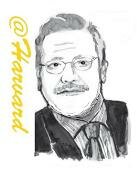(Monetary dialogue with the ECB: download European Parliament Briefing Paper September 2013)
Abstract
The ECB becomes a central element in the New EMU architecture with an influence in a variety of roles and tasks on top of its primary mandate. This evolution in itself is natural. The ECB is well suited to be involved in additional roles which require specialized knowledge and which are inherently related. Most of the time this should work fine.
However under some extraordinary circumstances, problems may arise due to conflicts of interest, moral hazard or time inconsistencies. We argue that one should pay particular attention to minimizing the possibility of such conflicts. A recurring theme in this briefing paper is the notion that various roles should be able to operate independently of each other and independent from the political landscape. Political independence necessarily implies clear accountability.
We show that implementing this idea of independence may prove to be difficult in practice because of the many interdependencies between the different roles. At the end of this briefing paper we point to the fact that some institutions in the European financial landscape may have become unwieldy. Additionally each institution is somewhat differently organized. We suggest that aiming at similar structures (at the higher echelons) and creating lean decision making bodies is desirable path to follow in the future.






